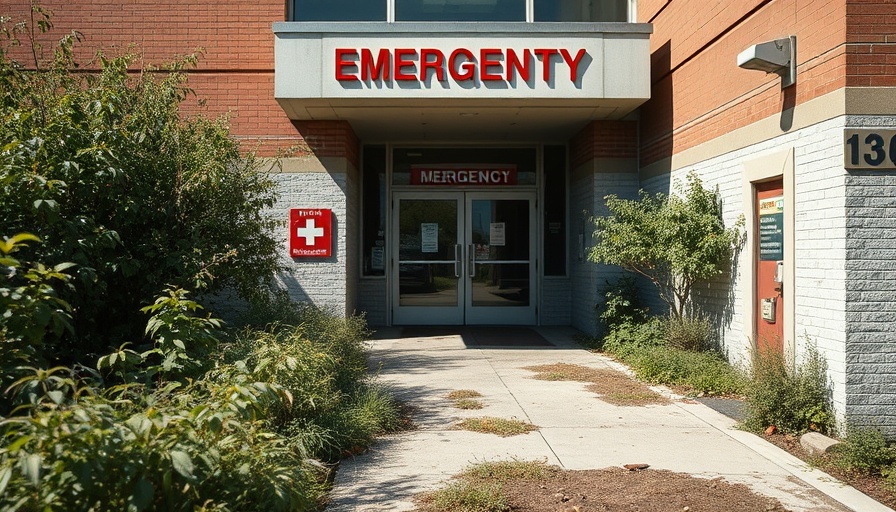
A Hospital in Crisis: The Closure of Weiss Memorial
The silence that enveloped Weiss Memorial Hospital on Friday morning spoke volumes. As the facility prepared to lose its Medicare funding, staff and community members faced the grim reality that had been anticipated for weeks. The emergency room and other essential services effectively shut down as of 7 a.m., leaving both patients and staff in a state of uncertainty.
Dr. Manoj Prasad, the owner of the hospital, and his team had not commented on the situation, but reports indicated that the hospital's closure was inevitable. Staff and local residents remarked that panic was taking hold. Registered nurse Daniel Maser expressed concerns for his colleagues, stating that “a lot of people are panicking and scrambling to find jobs.” The emotional toll was evident as community members gathered to voice their support for the hospital at a rally held later that afternoon.
The Impact of Medicare Funding Loss
Weiss Memorial faced a dire situation as the Centers for Medicare & Medicaid Services announced that it would terminate the hospital's participation in Medicare due to non-compliance with various health and safety regulations. These included serious concerns regarding nursing services and operational temperature control that led to dangerously high conditions in the intensive care unit and emergency department.
It is crucial to understand the repercussions of this funding loss, especially for vulnerable populations relying on this hospital for essential services. As resident and community advocate Marianne Lalonde articulated, “It serves a population that is really in need.” The closure hints at more extensive implications for those who depend heavily on Medicare and Medicaid services in the Uptown community.
Broader Implications for Health Services
This unfolding crisis is not merely about one hospital’s closure; it signals a trend affecting healthcare delivery systems nationwide. As hospitals grapple with compliance issues and funding pressures, similar circumstances threaten facilities across the country. Such closures could lead to an overheated transport system, especially in communities where services are limited.
Additionally, the situation at Weiss raises larger questions about the adequacy of healthcare in urban settings. Communities across the U.S., particularly those like Uptown, already experience healthcare disparities. The closure of Weiss could lead to deeper inequalities in access to care as residents are forced to seek services far from home.
Exploring Alternatives: Medicare Advantage Plans
In light of the fears surrounding Weiss Memorial's closure, understanding Medicare options becomes critical. For residents in Muskegon and beyond, examining Medicare Advantage plan comparisons and seeking highly-rated choices is essential.
Many residents may be unaware of the potential for free Medicare Advantage plans available to them. Understanding these options may empower them to make informed choices about their healthcare needs. From reviewing the differences in Medicare Part B options to comparing Medicare drug coverage, providing resources that assist individuals in navigating these plans is vital.
A Community Remains Hopeful
Despite the grim realities facing Weiss Hospital, the response from community members and healthcare professionals reveals resilience. Today’s rally represents not just a plea to keep the facility open but a testament to the pivotal role Weiss has played in their lives. As community members and staff gather to voice their concerns, the power of solidarity emphasizes the human aspect of healthcare amid policy changes.
To move forward, local residents must actively engage with their healthcare options, ensuring that they understand plans best suited to their needs amidst such turbulence in the healthcare landscape. Local Medicare Medicaid specialists can provide trusted guidance to navigate these changes effectively.
For further assistance, contact your local Medicare Medicaid specialist at (231) 571-6100. Your best plan awaits.
 Add Row
Add Row  Add
Add 




Write A Comment